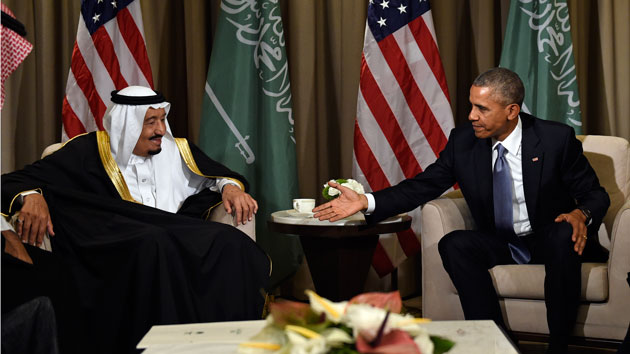
Buildings ravaged by fighting in Sirte, Libya, in 2011.Manu Brabo/AP
In 2015, the United Nations Security Council expressed concern over the unchecked spread of weapons to militant groups plaguing Libya following the fall of Muammar Gaddafi. Fast-forward a year: The country has descended further into chaos, as dozens of militias, Al Qaeda and ISIS, and two rival governments backed by armed groups vie for power. So, naturally, the United States is ready to ease the UN arms embargo that was put in place in 2011.
The United States, along with many of its international partners, wants to be able to supply “necessary lethal arms” to Libya’s UN-backed interim Government of National Accord to fight ISIS and other terrorist organizations. “It’s a delicate balance. But we are, all of us here today, supportive of the fact that if you have a legitimate government and that legitimate government is fighting terrorism, that legitimate government should not be victimized by [the embargo],” Secretary of State John Kerry said on Monday.
The same day, Pentagon press secretary Peter Cook admitted that our military doesn’t have a “great picture” of what is happening in Libya. And a day later, the chief of US Africa Command, Army Gen. David Rodriguez, told the Washington Post that it is difficult to determine which militia groups are aligned with the government that the United States hopes to arm. “We’re really dependent on the Government of National Accord to figure out who is with them and who is moving over toward them,” Rodriguez said. “They’ve only been there a month, and they’re still struggling to get established in Tripoli.”
The conditions in Libya are ripe for arms proliferation, and some observers are concerned that flooding the country with more small arms and ammunition, which is what Rodriguez said is most needed, will only fuel the conflict. “The West’s provision of arms into Libya has been devastating to the country for years,” Andrew Feinstein, the executive director of Corruption Watch, told the Washington-based Forum on the Arms Trade on Tuesday. “When NATO airstrikes were launched in support of rebels fighting Colonel Gaddafi, they first had to target weapons, including ground to air missiles, that the West had supplied to Gaddafi. On the dictator’s overthrow, the huge number of surplus weapons provided to him soon found their way onto the black market. Will the West never learn that pouring weapons into an existing conflict only results in that conflict becoming bloodier and longer?”
At the same forum, Iain Overton, the executive director of Action on Armed Violence, said, “We know that the Pentagon lost track of about 190,000 AK–type assault rifles and pistols in Iraq. We know that it lost track of more than 40 percent of the firearms provided to Afghanistan’s security forces. And we know that the Pentagon is unable to account for more than $500 million in US military aid given to Yemen. What are the chances, then, of a headline in five years time stating that the Pentagon has lost millions of dollars worth of guns in Libya?”
The potential for losing control of American weapons has been highlighted in Iraq and Syria, where ISIS has captured large quantities of US equipment—everything from M-16s and mortars to armored vehicles and surface-to-air missiles. In June 2014 alone, ISIS captured enough weapons, ammunition, and vehicles to arm 40,000 to 50,000 soldiers, according to the UN Security Council. A year later, US-backed rebel forces entered Syria and handed over their arms to Jabhat al-Nusra, Al Qaeda’s Syrian affiliate. In March, al-Nusra targeted another US-backed rebel group, detaining scores of fighters and stealing their weapons, including US-made anti-tank missiles.
“Controlling end users and end-use in a conflict setting, particularly the kind of chaotic, anarchic conflict that you have in states that are failed, is extraordinarily difficult, often impossible,” says Matt Schroeder, senior researcher at the Washington DC-based Small Arms Survey.
The announcement to ease the Libyan arms embargo drew skepticism not only from analysts, but from some lawmakers as well. House Armed Services member Rep. Hank Johnson (D-Ga.), expressed concern about “flooding Libya with American arms.” Sen. Chris Murphy (D-Conn.), who has proposed limiting weapons sales to Saudi Arabia, said, “This is an incredibly fragile government. I hope that we ask some very tough questions before we start arming a government that’s on ice that’s still pretty thin.”


















